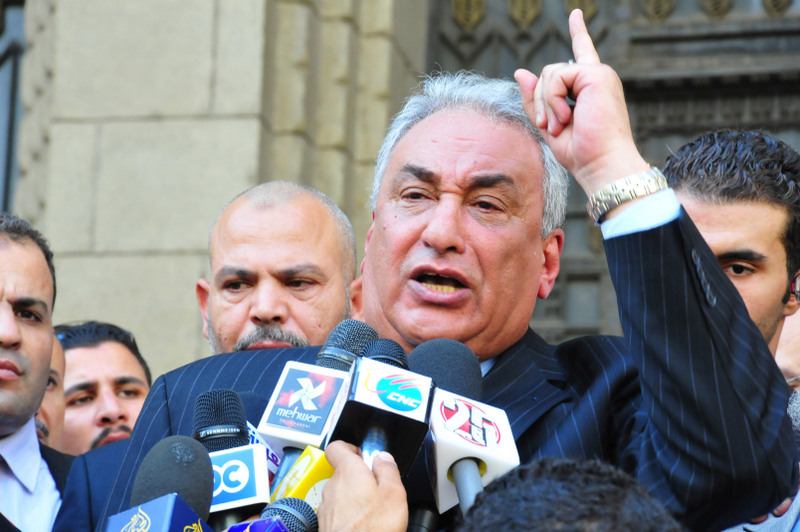All Arab governments preside over deeply incoherent institutional structures and systems of governance that negatively impact their ability to effectively serve the public interest. And yet, most regimes purposefully perpetuate the political incongruence and economic "dissonance" that is at the root of their failure to meet popular demands for accountability, transparency and responsiveness. If properly managed and contained, such state induced incoherence and disorder in the political and administrative system serve to maximize the regimes’ arbitration powers and thus their preeminence. Coercion comes second and is only utilized when deemed absolutely necessary.
The behavior of the state and of its political-administrative apparatus is, therefore, not driven by societal needs but by those of the regimes in place and their powerful economic allies. Decision-making procedures, for example, are usually riddled with inconsistencies, ambiguities and contradictions. The reason is that Arab regimes do not base their economic, political and social policies on rigorous criteria designed to produce effective and coherent outcomes. Rather, most strategic decisions are measured according to their impact on regimes’ hold on power.
The same degree of incoherence and contradictions can be observed in the foreign policy realm. Most Arab regimes are content to operate within a system of manageable instability where internal upheavals do not spread beyond the national areas of confrontation and interstate disputes do not escalate into all-out wars. The leadership to steer the Arab world toward regional cooperation and human development has been sorely lacking for several decades. Personal differences and intense state-to state rivalries have derailed much-needed regional economic and political integration.
In North Africa, for example, trade between all five countries ranks among the lowest of any region in the world. The establishment of the Arab Maghreb Union in 1989 was supposed to jumpstart a promising regional partnership, but the lack of leadership and deep-seated animosity between Morocco and Algeria deprived the region of an estimated three billion dollars in foreign investment and instead caused a loss estimated at two percent of average annual GDP for each country.
The states’ conduct of foreign policy has also been impacted by conflicting actors and divergent currents. Nowhere is this more noticeable than in the Algerian position on the Western Sahara dispute. Since 1976, Algeria’s policy has been stuck in perpetual tension between the military and the civilian branches of the government, with the civilian being, for the most part, supportive of a rapprochement with Morocco. Even the current president, Abdelaziz Bouteflika, was more inclined to find a compromise over the Western Sahara during the first three years of his presidency. But after strong objections from the military, Bouteflika switched positions and has since adopted a hard-line approach to the conflict. The irony is that since Bouteflika had his change of heart, some in the military started clamoring for a political solution to the conflict.
Morocco’s handling of the conflict has also been marred by years of inaction, stalling and pure diplomatic incompetence. In my recent stay in the Moroccan-controlled Western Sahara, several of my interviewees were supportive of Morocco’s historical ties to the territory but faulted the government’s muddled policy. One historical figure in the region, who strongly supports the "Moroccaness" of Western Sahara, bluntly criticized what he termed the government’s "mischievous policy" in negotiating with the Polisario while (successfully) luring several of its leaders into prestigious government positions. Such actions, he said, only heighten mistrust of Morocco’s intentions and, unfortunately, undermine its credible autonomy proposal.
Everybody is in agreement that a resolution of the Western Sahara dispute would untangle the main existing deadlocks and impediments toward regional reconciliation, interregional economic integration and coordination in the fight against violent extremism, drug trafficking and smuggling. The contours of such a solution are also well known: widespread autonomy that safeguards the identity of the Sahrawi people and their right to the establishment of local institutions, and territorial management of the Western Sahara within the framework of Moroccan sovereignty. Such a proposal already enjoys wide support in the US Congress and has the backing of the last three UN secretaries general and of France, Spain and other American allies. A growing number of top Polisario officials also endorse the plan.
"In the past, we had two conflicting options: either to integrate into Morocco or become independent. Today we have a third option that helps us achieve our main objective, which is the Sahrawi distinction," the top police official in Polisario-controlled Tindouf stated recently.
Dr. Anouar Boukhars is assistant professor of political science and international studies at McDaniel College. He is also a visiting fellow at the Brookings Doha Center. This commentary is published by DAILY NEWS EGYPT in collaboration with bitterlemons.org.


